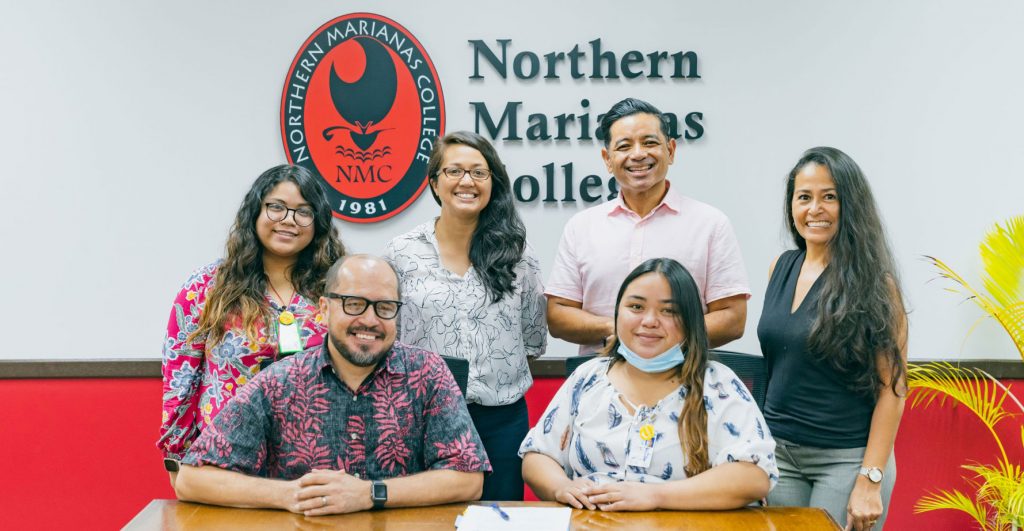CHCC partners with NMC for nicotine cessation classes

The Commonwealth Healthcare Corp and Northern Marianas College formally sign their partnership on July 6, 2021. Standing, from left, Brianna Fajardo, CHCC community outreach specialist; Patricia Coleman, NMC interim dean; Frankie Eliptico, NMC vice president; Tayna Belyeu-Camacho, certified cessation facilitator. Seated, from left, Dr. Galvin Deleon Guerrero, NMC president; and Jolanie Tenorio, CHCC project assistant. (CONTRIBUTED PHOTO)
The Commonwealth Healthcare Corp.’s Non-Communicable Disease Bureau, in partnership with the Northern Marianas College-Cooperative Research Extension and Education Service, is offering nicotine cessation classes at the college. The partnership will further support and expand tobacco prevention and control efforts, and reduce tobacco-related morbidities and mortalities in the CNMI.
According to the 2016 CNMI Hybrid Survey, adult residents of the CNMI are at an increased risk of developing tobacco-related illnesses such as cancer, which is three to four times higher in the CNMI when compared to the United States; one in four adults chew betel nut; and 80% use tobacco with their chew.
The CHCC Health and Vital Statistics Office reports that 76% of deaths in the CNMI between January to June 2021 are due to NCDs and related risk factors. According to the CNMI Cancer Registry, lung and mouth cancer, primarily from tobacco use, are two of the Top 5 cancers in the CNMI. Data from the CHCC also reveals that younger people in their 30s and 40s are being diagnosed with cancers related to tobacco use.
The U.S. Centers for Disease Control and Prevention states that tobacco use is the leading cause of preventable disease, disability, and death in the U.S. Smoking causes cancer, heart disease, stroke, lung diseases, type 2 diabetes, and other chronic health conditions.
To schedule a free oral cancer screening, call the CHCC Dental Clinic at (670) 236-8369.
The NCDB also offers nicotine cessation services with support from certified cessation facilitators, which includes creating a personalized quit plan, understanding cravings and withdrawals, identifying tobacco habits and coping strategies, and proper use of preferred nicotine replacement therapies. (PR)



























